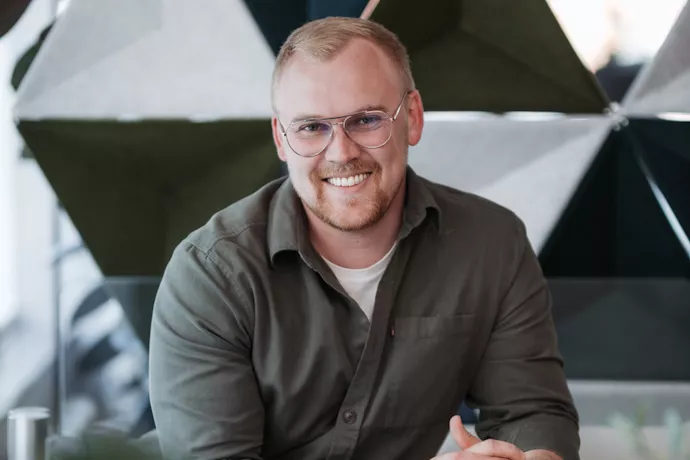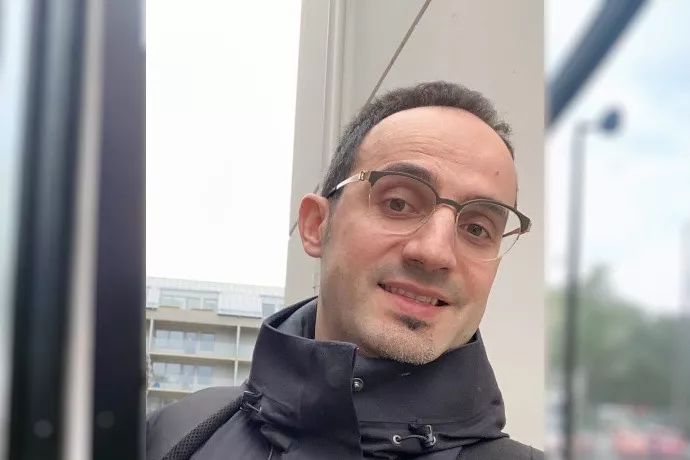Career with a master's degree in information systems
Career and labour market
Graduates are in high demand as organisations rely on information systems experts to understand, design and develop systems that help them remain competitive in today's global marketplace.
The Master’s in Information Systems provides you with outstanding career opportunities. After graduation, you can pursue a career that links technology, people and business. You can seek positions such as: IT consultant, product manager, IS designer, IT project manager, business and systems analyst, and business intelligence analyst. The programme is also an excellent preparation for PhD studies.
Former students have found work at companies such as Goldman Sachs, Tetra Pak, Capgemini, IBM, Microsoft, Ericsson, PWC, IKEA, Axis Communications, Qlik, Accenture and EY. Some graduates have also started their own businesses.
Alumni – Master's programme in information systems
Read more about what our former students on the Master's programme in information systems do for work today.
In 2022, Stefany graduated with a master's degree in information systems from the Department of Informatics at Lund University.
Tell us about what you do today!
“I am a technology graduate at Nordea in Copenhagen, during my graduate programme of 2 years I have been trying different roles such as IT project manager, business analyst and now I am trying out the role of front-end developer. My focus is the savings and investments area of the bank app. All my rotations have been connected to this topic which I find very interesting. After my programme ends I’ll get to take one of the above roles, where I will most likely focus on IT projects and being a bridge between business and tech.“
What is the main reason you work with what you do?
“Since I started my masters in information systems I knew I wanted to do a graduate programme. I wanted to have the opportunity to try different roles before choosing my main career path. It’s fantastic to be able to jump from one role to another in different teams, so at the end of the day I am learning a lot about the whole development process, not just technical but also business requirements.“
How did the Department of Informatics and LUSEM prepare you for working life and a career in your field?
“I would say all the group projects and practical assignments have been very useful in my working environment. Being able to work on a project from the technical perspective with a diverse team is exactly what the working environment is about.
Additionally reading different kinds of papers allowed me to understand more about the field and backing up my decisions with data and sources have been proven to be very useful at work.“
What advice would you give yourself if you started your studies now?
"Prepare, learn and practice.
Prepare to apply for many different roles and companies, don’t wait until you are finished with your studies, make a list of places you would like to work and start applying right away. Many of my classmates, myself included, have gotten a job offer before we even graduated. I even applied before Christmas break to a few roles!
Learn as much as you can in university, do practical assignments and go the extra mile, practice what you are learning and use this in your future career."
Tell us about your expectations for the future.
"My short term goal is to find a role that I enjoy by the end of my programme. I want to help break the barriers that exist between business and technology. I believe my education has prepared me for these kind of roles, where I am a connector between the 2 worlds and that’s what I want to focus on in the future."
What do you prefer to do outside of work?
"I love volunteering and doing events, I often create events for international women living in Malmö. Is fun to meet new people and help them out by organising events that help them develop new friendships. My favourite events I have created are annual clothes swapping and flower crown making in midsummer! It is wonderful to do activities together!"
Any hidden talent?
"I can make amazing travel itineraries, I create plans to see as much as possible, find hidden places and with the best route. Maybe I was a travel agent in my past life 😜"
Jakob has both a bachelor's degree and a master's degree from the Department of Informatics at Lund University. He finished his master's degree during the spring of 2018.
(The below interview is translated from Swedish).
Tell us about what you do today!
“I currently work as a Project & Engagement Manager at Capgemini in Malmö. The role means that I am both responsible for the projects that we deliver to our clients, and also have an internal responsibility regarding how we analyse, develop and follow up on our existing and future projects.“
What is the main reason you work with what you do?
“The main reason why I work with what I do today is because I enjoy being involved in both business and in digital development and transformation. Working as a project manager requires an overall understanding of what the market demands and the industrial standards, but also an understanding of what technical aspects are required, and how to break down the work into manageable steps.“
How did the Department of Informatics and LUSEM prepare you for working life and a career in your field?
“I have completed both the bachelor's and master's programme at the Department of Informatics, and I can say with all certainty that I wouldn't be where I am today if it wasn't for the design and scope of the programme. The common thread that you look for during your time as a student becomes very clear after a few years in your career. You can clearly see why certain elements were considered so important, and you begin to see relationships between areas you could not see before. The programme is thus an excellent springboard into working life, both in terms of building basic understanding, but also in terms of trend spotting and future digital innovations.“
What advice would you give yourself if you started your studies now?
“I would say "trust the process and take in what is being said". Whilst getting top marks in exams may seem important, I would say it is equally important to absorb what is being taught, and apply it in a way that allows you to navigate your way to a future dream position in your career.“
Tell us about your expectations for the future.
“The market is incredibly exciting right now, and the development is moving forward exponentially. My hope is that we will jump on the bandwagon in terms of new innovations and exciting solutions coming to the market, and implement them in our companies in a useful and beneficial manner. The future is bright!“
What do you prefer to do outside of work?
“Outside of work I spend time with my amazing dogs, with friends and colleagues, or at Crossfit classes.“
Any hidden talent?
“I am an great musician, I play the saxophone, the piano, the electric guitar and the violin.“
In 2009, Konstantinos graduated with a master's degree in information systems from the Department of Informatics at Lund University.
Tell us about what you do today!
“I work at Qlik, which is a software company specializing in business analytics products. My journey with Qlik started back in 2011 when I got a role as a Qlik App Developer. That journey has taken me through various roles and has led me to my current one - Customer First and Product Success Leader (EMEA). Being a Customer First Leader entails various responsibilities related to product expertise. One of those core responsibilities is that I get to lead techy expeditions on unraveling mysteries regarding product-related cases. Such cases require a leading attitude in collaborating and therefore communicating with Qlik R&D, Product Management, Product Support, and above all customers. Hence, If I could choose a couple of keywords/phrases that would summarise what I do today, those would be leadership, communication, product expertise, and above all a curious mindset with a doer approach.“
What is the main reason you work with what you do?
“My constant need to satisfy my curiosity in combination with learning new things; things that are way beyond my comfort zone drove me to accept the role I have today and give it all I got. Apart from that, a compelling reason is that I get to be a leading individual for matters that bridge the outside world (customers, sales, partners, etc) to an R&D department of a Software company while belonging to R&D myself.“
How did the Department of Informatics and LUSEM prepare you for working life and a career in your field?
“My MSc in Information Systems and LUSEM was what brought me into a "hands-on" contact with the realm of Business Intelligence via the Qlik Workshops that we had. That is one significant key take away but there is more to it. As I grew professionally, I gradually saw many interesting topics that I studied during my master's program surfacing and me getting "ah! I know that!" moments. Those moments, have helped me solve critical business problems and above all provided me with a good background so I can communicate those solutions efficiently.“
What advice would you give yourself if you started your studies now?
“I would definitely challenge my educators more on the hot topics that are currently stressing the information science industry. Another advice I would give is to use your thesis work (mostly the interviews part) as an opportunity to advertise yourself to potential employers. Lastly a generic advice: collaborate more and communicate more.“
Tell us about your expectations for the future.
“Whatever the future in our industry might bring, having a core foundation in how information is produced, perceived, and therefore exploited is key. Whether I expect a future packed with AI, Cloud techs you name it, my verdict will be that one can never stop learning - if one does, one shall get bored. Be flexible and always challenge yourself to learn things outside your comfort zone.“
What do you prefer to do outside of work?
“Spend time with my family and my 6-year-old son. When I have free time from that, I enjoy baking, playing basketball, swimming, drawing, seeking out rare lambic bottles, and drinking good beers with friends.“
Any hidden talent?
“I would say drawing is one of them.“



